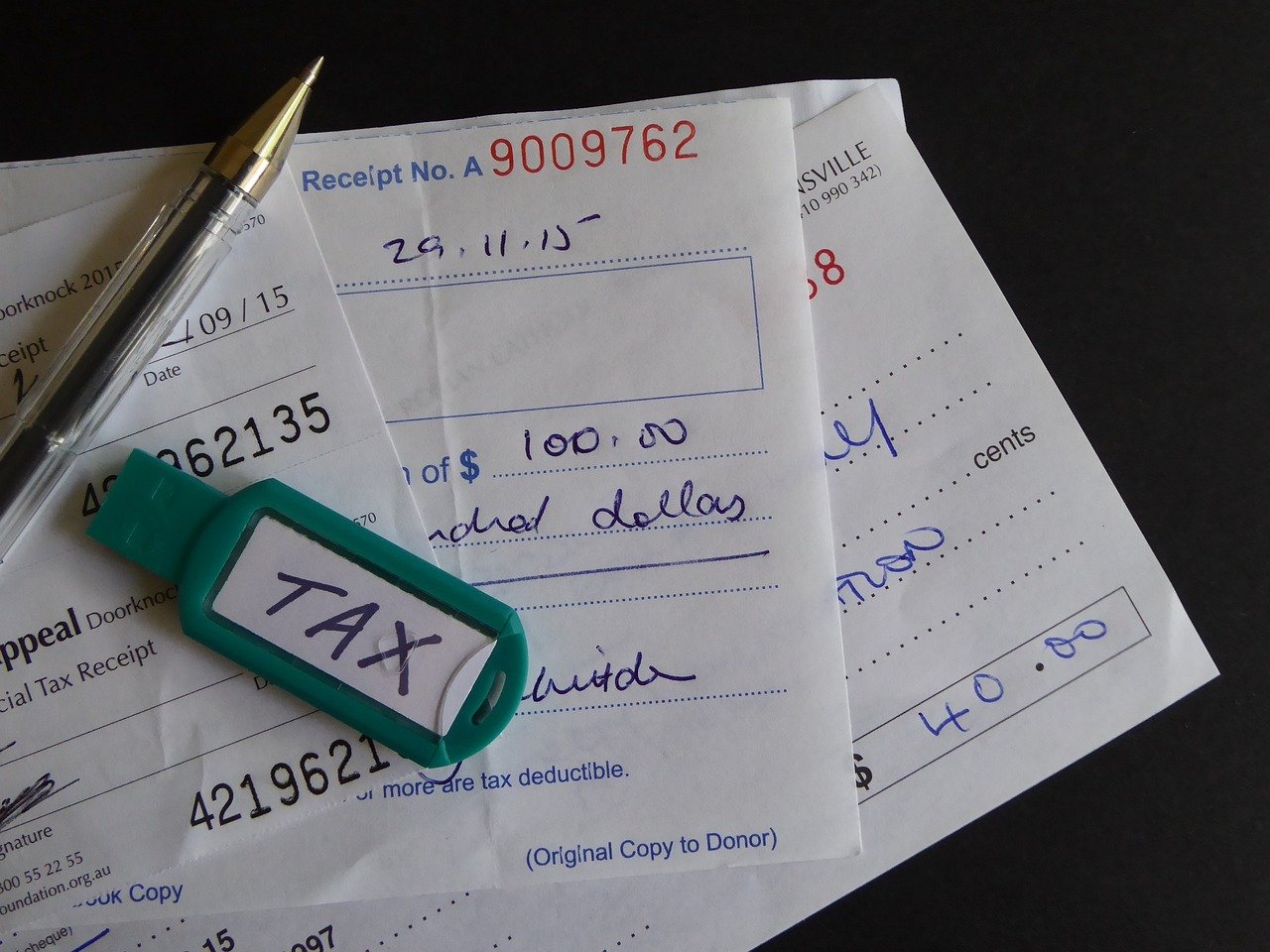Unlock Tax Savings: Strategies to Maximize Deductions for Self-Employed Professionals
If you find yourself in the exciting position of being self-employed or having a side gig, then you’re likely familiar with the financial considerations that come along with it. As you navigate the world of business, it’s important to ensure you’re maximizing deductions for all your business-related expenses. By taking advantage of the various deductions available to you, you can significantly reduce your taxable income and ultimately keep more money in your pocket. So, let’s explore some effective strategies to help you maximize deductions and make the most of your self-employment or side gig journey.
Types of Business-Related Expenses
Running a business, whether as a self-employed individual or someone with a side gig, comes with a variety of expenses that are necessary for operations and growth. Understanding the different types of business-related expenses can help you maximize your deductions and reduce your tax liability. In this article, we will explore various categories of business expenses, providing insights on how to navigate each one effectively.
Travel Expenses
If your business requires you to travel, you can potentially deduct the expenses incurred during those trips. Travel expenses often include transportation costs, lodging, meals, and other related expenditures. By keeping accurate records and understanding the rules and limitations surrounding travel deductions, you can ensure that you claim every eligible expense.
Transportation Costs
When it comes to transportation costs, you can deduct expenses for airfare, train tickets, rental cars, taxis, and even mileage if you use your personal vehicle. To claim mileage deductions, you must keep a detailed record of your business-related travel, noting the mileage driven for each trip.
Lodging and Meals
When you stay in a hotel or pay for meals while on a business trip, those expenses can be deductible. However, it’s important to note that there are limits to the deductible amounts for meals, and the percentage of the cost that can be claimed may depend on various factors. Keeping accurate records of your expenses, including receipts and the purpose of each meal, can help you maximize your deductions.
Temporary Work Locations
If your travel involves temporary work locations, such as when you are working at a different office or job site, you may be able to deduct the additional expenses associated with those locations. This could include expenses such as transportation, meals, and even lodging if necessary. Make sure to keep track of the details and purpose of your temporary work travel to make the most of your deductions.
Traveling for Conferences and Trade Shows
Attending conferences, trade shows, or other industry events is often essential for networking and business growth. Luckily, the costs associated with attending these events can be tax-deductible. This includes transportation, lodging, meals, and even registration fees. Keeping records of your attendance, event schedules, receipts, and any materials obtained will be critical when it comes to claiming these expenses.
Record Keeping for Travel Expenses
To ensure that you maximize your travel expense deductions, it’s crucial to maintain thorough and accurate records. Keep receipts for all expenses, record the purpose of each expense, and document the dates and locations of your travel. Having a well-organized system for tracking your travel expenses will save you time and headaches during tax season.
Home Office Expenses
For those who run their business from the comfort of their own home, there are unique opportunities to take advantage of home office deductions. This can involve deductions for rent or mortgage interest, utilities, insurance, and even expenses related to your home office setup.
Determining Eligibility for Home Office Deduction
To be eligible for the home office deduction, you must use a specific area of your home regularly and exclusively for your business. This area should be your primary place of business or where you meet clients or customers. It’s important to note that working from your kitchen table or couch doesn’t qualify.
Calculating Home Office Deduction
Once you determine that you qualify for the home office deduction, you can choose between two methods to calculate the deduction: the simplified option or the regular method. The simplified option allows you to multiply the square footage of your home office by a prescribed rate, whereas the regular method requires you to track actual expenses related to your home office.
Rent or Mortgage Interest Deduction
If you rent your home or have a mortgage, a portion of your monthly rent or mortgage interest can be deducted as a home office expense. The deduction amount is based on the percentage of your home that is exclusively used for your business.
Utilities and Insurance Deduction
You may also deduct a percentage of your utility bills, such as electricity, heating, and water, based on the share of your home used for business purposes. Additionally, if you have separate insurance coverage for your home office, you can deduct the cost of those premiums.
Home Office Equipment Expenses
Equipment purchased for your home office, such as desks, chairs, computers, and printers, can also be deducted. These expenses can be deducted in full in the year of purchase or depreciated over time, depending on the type of equipment and its useful life.

Office Supplies and Equipment
Running a business often requires the use of various supplies and equipment to maintain efficient operations. As such, these expenses are deductible and can help reduce your taxable income.
Purchasing and Leasing Costs
When purchasing office supplies or equipment outright, you can deduct the full cost of the items in the year of purchase. If you choose to lease equipment instead, you can deduct the leasing costs as they are incurred.
Computers and Software
Computers and software are integral to many businesses today. The expense of purchasing or upgrading computers, laptops, tablets, or software required for your business can be fully deductible. Be sure to keep accurate records of your purchases and any relevant receipts.
Printers, Scanners, and Copiers
If your business relies on printing, scanning, or copying documents, the expenses associated with printers, scanners, copiers, and related supplies (such as ink cartridges) can be claimed as deductions. Keep track of these expenses and note their purpose for records.
Furniture and Decoration Expenses
Furnishing your office space in a way that promotes productivity and professionalism is crucial. Expenses related to office furniture, such as desks, chairs, filing cabinets, and even decorative items, can be deducted as business expenses.
Maintenance and Repair Costs
Over time, office equipment may require repairs or regular maintenance. The costs associated with repairing computer systems, printers, or other office equipment are deductible expenses that can help offset your income.
Advertising and Marketing Costs
For businesses to thrive and gain exposure, advertising and marketing play essential roles. Fortunately, the costs associated with these activities can be deducted, helping you invest in the growth of your business.
Online and Digital Advertising
In today’s digital age, online advertising has become increasingly important. Whether you advertise through search engines, social media platforms, or online directories, the expenses incurred can be claimed as deductions. This includes fees for running ads, managing campaigns, and even hiring professionals for search engine optimization (SEO).
Print Advertising
Traditional print advertising, such as newspaper ads, brochures, or direct mail campaigns, also qualifies as a deductible business expense. Keep records of your advertising contracts, receipts, and proofs to substantiate your deductions.
Promotional Materials
Promotional materials like business cards, flyers, banners, and promotional giveaways are essential for marketing your business. These expenses are deductible, as they directly contribute to promoting and enhancing your brand exposure.
Website and Graphic Design
Creating and maintaining a professional website is crucial for businesses of all sizes. The costs associated with website design, development, hosting, and ongoing maintenance are considered deductible expenses. Graphic design services, including logo creation and branding materials, are also deductible.
Search Engine Optimization (SEO)
Investing in search engine optimization (SEO) is a common practice to improve your website’s visibility and search rankings. These expenses, whether incurred through hiring an SEO consultant or utilizing SEO software, are deductible business costs that can help increase your online presence.

Professional Fees and Subscriptions
As a business owner, you may need various professional services to ensure compliance, receive expert advice, or access valuable resources. Fees paid for these services, as well as relevant subscriptions, are generally deductible.
Accounting and Bookkeeping Fees
Keeping your financial records in order is crucial for any business. Hiring an accountant or bookkeeper to manage your business finances, prepare tax returns, and provide financial advice is an expense that can be deducted. This ensures accuracy and compliance while maximizing your tax deductions.
Legal and Consultation Fees
Legal fees incurred for business-related matters, such as consultations with lawyers or attorneys for contract reviews, trademark applications, or legal advice, are tax-deductible expenses. These fees help protect your business’s legal interests and ensure compliance with regulations.
Professional Association Memberships
Belonging to professional associations in your industry often provides valuable resources and networking opportunities. The membership dues paid to these associations are typically deductible expenses, helping you stay informed and connected within your field.
Trade Magazine Subscriptions
Subscribing to trade magazines or journals within your industry can provide valuable insights and keep you updated on the latest trends and practices. The cost of these subscriptions is fully deductible as they directly contribute to your professional development and staying informed.
Online Course and Training Subscriptions
In an ever-evolving business world, continuous learning and professional development are essential for growth. The expenses associated with online courses, training programs, and industry-related subscriptions are deductible business expenses that contribute to enhancing your knowledge and skills.
Insurance Premiums
Insurance coverage is crucial to protect your business from various risks and liabilities. Fortunately, the premiums paid for business insurance are generally deductible as business expenses.
Business Liability Insurance
Protecting your business from potential liability claims is essential. Premiums paid for general liability insurance, professional liability insurance (also known as errors and omissions insurance), or any other type of business liability insurance are deductible expenses.
Property and Asset Insurance
If you own or lease a commercial property or have valuable business assets, insurance premiums paid to protect them are deductible. This can include property insurance, business interruption insurance, or insurance for equipment and inventory.
Health and Disability Insurance
As a self-employed individual, finding and maintaining health insurance coverage may be a challenge. However, the premiums you pay for health insurance, including premiums for your spouse and dependents, can be deducted as a business expense. Additionally, disability insurance premiums for yourself or employees are also deductible.
Errors and Omissions Insurance
Errors and omissions (E&O) insurance, also known as professional liability insurance, is essential for certain professions. Premiums paid for E&O insurance, which protects against negligence claims arising from your professional services, are deductible expenses.
Workers’ Compensation Insurance
If you have employees, workers’ compensation insurance is mandatory in most states. Premiums paid for workers’ compensation coverage are generally deductible, as they are necessary expenses related to hiring and managing employees.

Vehicle Expenses
If you use a vehicle for business purposes, you can typically deduct the expenses associated with its use. This includes mileage deductions, lease or loan payments, fuel and maintenance costs, insurance, and even parking fees.
Mileage Deduction
When you use your personal vehicle for business purposes, you have the option to deduct your mileage based on the mileage rate set by the IRS. Keep detailed records of your business-related mileage to substantiate your deductions. Be sure to note the purpose and destination of each trip, as well as the starting and ending mileage.
Vehicle Lease or Loan Payments
If you lease a vehicle or have a loan payment for a vehicle used for business purposes, a portion of those costs can be deducted. The deduction amount depends on the percentage of business use versus personal use for the vehicle.
Fuel and Maintenance Costs
The expenses incurred for fuel, oil changes, repairs, and other maintenance costs directly related to operating your vehicle for business purposes can be deducted. Keep receipts and records of these expenses to support your deductions.
Insurance and Registration Fees
Insurance premiums paid for your vehicle, including both liability and comprehensive coverage, are deductible expenses. Additionally, any registration fees or personal property taxes paid for your vehicle can also be claimed as deductions.
Parking and Tolls
Parking fees and toll charges incurred while conducting business-related activities can be deducted. Make sure to keep track of each expense and document its business purpose to substantiate your deductions.
Meals and Entertainment Expenses
While the Tax Cuts and Jobs Act has imposed restrictions on deducting entertainment expenses, you can still deduct some business-related meal expenses.
Business Meals
Meals that are directly related to your business, such as meals with clients, customers, or potential business partners, can be partially deducted. Under current tax laws, you can generally deduct 50% of the cost of business meals.
Entertainment Expenses
Entertainment expenses, such as taking clients or business associates to concerts or sporting events, are no longer fully deductible. However, if the entertainment is thematically related to your business and its purpose is to discuss business matters, you may be able to deduct a portion of the expenses.
Record Keeping for Meals and Entertainment
To substantiate your meal and entertainment expense deductions, it’s crucial to keep accurate records. This includes receipts, a record of the date and location of the meal or entertainment event, the individuals involved, and the business purpose. Proper documentation will help you maximize your deductions and comply with IRS guidelines.

Education and Training Costs
Investing in your education and skills development is key to staying competitive and increasing your business’s potential. Consequently, certain education and training costs are deductible business expenses.
Continuing Education Courses
If you take courses or attend workshops to improve and enhance your skills directly related to your profession or business, you can typically deduct these expenses. This may include continuing education classes, industry seminars, and conferences.
Certification and Licensing Fees
Fees paid for professional certifications and licenses necessary for your business operations can be deducted. Keep records of your certifications, licenses, and renewal fees to substantiate your deductions.
Training Programs and Materials
Expenses associated with training programs and materials, such as online courses, training manuals, or educational software, can be deducted. These expenses contribute directly to improving your business knowledge and skills.
Miscellaneous Expenses
Beyond the previously mentioned categories, there are various miscellaneous expenses that may be deductible for your business. While these expenses are not specifically categorized under one heading, they are still essential and can contribute to reducing your taxable income.
Bank and Credit Card Fees
As a business owner, you may incur fees associated with your business bank accounts and credit cards. These fees, such as monthly service fees or transaction fees, are deductible expenses that can add up over time.
Office Cleaning and Maintenance
Maintaining a clean and functional office environment is important for productivity and professionalism. The costs associated with office cleaning, repairs, and general maintenance are deductible business expenses that help create a conducive work environment.
Shipping and Postage
If your business involves shipping products or sending out mail, the expenses incurred for shipping and postage can be deducted. These expenses can include postage fees, shipping supplies, and even shipping service fees.
Business Gifts
When you give business-related gifts to clients or employees, the cost of those gifts is deductible up to a certain limit per recipient per year. Be sure to keep records of the gifts, including their purpose and recipients, to support your deductions.
Work-Related Software and Applications
Software and applications necessary for running your business, managing projects, or enhancing productivity can be deducted as business expenses. This includes software purchases or subscriptions for accounting, project management, graphic design, or any other software essential to your business operations.
Maximizing your deductions for business-related expenses is essential for reducing your tax liability and saving money. By understanding the different categories of business expenses and keeping accurate records, you can navigate the complexities of taxation and ensure you claim every eligible deduction. Consult with a qualified tax professional to ensure compliance and make the most of your business deductions. Remember, maximizing your deductions ultimately puts more money back into your pocket, allowing you to invest in your business’s growth and success.


